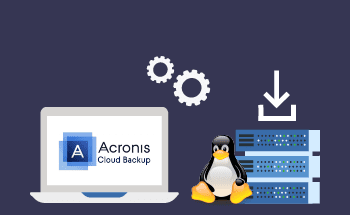How to choose the best hosting provider with Linux for VPS
09:20, 04.11.2022
A virtual private server is an isolated environment with its own operating system and dedicated capacity, simulating a full-fledged physical server. That is, VPS is just a part of the physical server, which, nevertheless, has all its attributes:
- CPU;
- RAM;
- storage.
VPS virtualization can be carried out by different technologies, which have quite a significant impact on machine performance and customer convenience. In this article, we will tell you how to choose the best hosting provider for a virtual private server based on OS Linux.
Virtualization technology: which ones are available and what is better to choose
For ease of understanding, virtualization technology can be compared to a knife that cuts a pie – a physical server – into several pieces. The knife must be sharp so that the pieces are even and beautiful. In the case of VPS it is extremely important that the "neighbors" on the physical server do not interfere with each other, and do not take away each other's power. It is important for everything to work properly and stably, and this primarily depends on the mechanism of virtualization.
In terms of technology implementation, virtualization can be of two types:
- Software virtualization. Resources are shared within the operating system, and all virtual machines have one common core. This technology is simpler, it saves a significant amount of time in configuration and maintenance, but there is one significant drawback – a full-fledged division of server resources is impossible. Because of this, if one VPS is heavily overloaded, others can also suffer. Cheap, convenient, and simple, but for serious projects are not suitable.
- Hardware virtualization. In this approach, a common Linux operating system is put on a server-host, through which the administrator can create completely isolated from each other virtual machines. Each VPS will have its own OS and a separate kernel.
Hardware virtualization is much better in terms of security and stability, because individual machines cannot interact with each other. Of course, with hardware virtualization individual VPSs will consume more resources, because each VPS needs to provide its own operating system.
Now let's take a look at the most popular hypervisors that are used for virtualization on OS Linux:
- OpenVZ. Software virtualization, often used in cheap VPS. It's not always stable, plus the platform allows overselling, which makes it very difficult for clients – the consequence is the lack of resources, from which all VPS will work slowly and freeze.
- Virtuozzo. Also software-based, but much more elegant in terms of architecture. Virtuozzo-based VPSs are more expensive to lease but the resource isolation is much higher. All servers will share space, limited only by the number of disks in the cluster – because of this, you can easily shut down a virtual machine on one server and immediately turn it on on the other, with no data copying or migration time. The main drawback is that the Virtuozzo Automator control panel is more suitable for viewing statistics on resources and workloads rather than for real use.
- KVM. Hardware virtualization provides complete isolation of virtual machines from each other. The advantages include the highest level of privacy and data security, as well as the possibility of deep customization of the operating system, up to the modification of the kernel. In addition, the KVM platform provides the possibility of remote management via VNC. The only disadvantage is that the hypervisor is quite difficult to configure. However, it is not the client's problem, but the problem of the hosting provider. As for the rest, it is probably the best hypervisor at the moment.
- XEN. Also, a hardware hypervisor which provides the same advantages: complete isolation of a VPS. Here, we can also mention the possibility of live migration of running machines between hosts and broad support of different platforms: x86, x64, ARM, and PPC. The disadvantages of XEN are the high overhead cost of guest systems deployment, which is why it is not always possible to optimize VPS density.
- VMWare. Universal hardware virtualization hypervisor, which is suitable not only for Linux but also for a number of other systems: Windows, Solaris, FreeBSD, Netware, MacOS, etc. The platform is easy to install and configure. VMware Workstation is installed in the same way as any other software for Windows or Linux. It does not require disk space reallocation or other actions of this kind – resources are allocated automatically. The significant drawback is the unreasonably high cost of the paid version. And the free version is often not suitable for the long term, because it has a greatly reduced toolset and limited capabilities.
HostZealot has tested many different hypervisors over the years, both hardware and software. In the end, we decided on KVM and consider it to be the best solution at the moment. Reliability, stability, and the ability to quickly scale a VPS in terms of CPU and RAM capacity – in practice, these are very significant advantages. Virtual machines based on the KVM hypervisor show better performance and fault tolerance than those based on XEN. Thus, we can safely recommend this technology to everyone who is looking for a hosting provider to lease a virtual private server at the moment.
Choosing a hosting provider: What to consider
In order for the website or other project to work properly, the virtual private server must provide high performance, fault tolerance and protection against all kinds of threats. Let's consider the key points you should pay attention to when choosing a hosting provider.
Data Center
The first thing to do is to study the list of partner data centers to assess the scale of its distributed network. The more high-tech data centers on the list of a hosting provider, the better for you – it means that the company has been in the market for a long time and that it is serious about this business.
A large selection of available data centers is a serious advantage because it allows customers to choose the best location to host their projects. For example, if your site is aimed at Americans, it would be logical to rent a VPS in Ashburn, Dallas, Chicago, or another administrative center in one of the states.
Customer reviews
Next, it is recommended to study the reviews on various independent sites and sites. This will allow you to get a more accurate picture of who you will be dealing with. Yes, the reviews may be commissioned, it is worth bearing this in mind, but even in this case, there must be reviews from real clients.
Payment and plans
A good hoster will offer you a wide range of pricing plans with the ability to pay in any convenient way. By bank card, cashless payment, cryptocurrency – whatever you like. A large number of payment options also indicates that the hoster is reliable.
Technical support and service
It is important that employees of the company you are interested in can help with any problem, whether it is an initial setup of VPS, server migration, or help with choosing the best operating system for your tasks. Having your own blog on the company's website with relevant information materials is also welcome – it means that the company attracts independent experts to write profile articles.
The number and variety of available tariffs with the possibility of operational capacity scaling. The more tariff plans there are, the easier it will be for you to choose the one that best suits your project.
DDoS protection
Any online projects must be secured against DDoS attacks, otherwise, your server can easily be overloaded, and "put down" by any, even inexperienced hackers. A DDoS attack is a distributed attack on an organization's IT system in order to bring it to failure. In this case, legal users of the system will not be able to access its resources, or this access will be hindered. For instance, HostZealot provides server protection on network and traffic layers (L3, L4) by routing all incoming traffic through multiple filtering nodes to get rid of spam, floods, and other unwanted packets. Our infrastructure can handle up to 400 Gbps of traffic.
Finally, we recommend that you check with your ISP to see what kind of hardware they are leasing. Modern hardware is always a plus because in this case, the server will work faster and more stable.
Conclusion
Remember that a good VPS running Linux cannot be cheap, because renting and maintaining that entire infrastructure requires a lot of money. In the case of cheap VPS, you can easily face a lot of unpleasant consequences, starting with overselling, when the capacity is resold, and ending with artificial bandwidth limitation, which will also negatively affect the operation of the server.
HostZealot has worked hard to improve our VPS/VDS and dedicated server rental service. We have an extensive list of partner data centers and favorable conditions, which become even more profitable for regular customers. Feel free to contact us!


